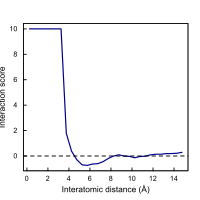Statistical potential

Statistical potential is like a game of guessing, where we try to predict the next move based on the previous action. Let’s say we are playing a game of chess and we want to know the probability of a bishop moving to a certain square. If we have played a lot of games before, we can look at the previous moves and figure out how likely it is the bishop will make that move.
In the same way, statistical potential is a way of predicting how likely a molecule is to interact with another molecule based on their previous interactions. Scientists use lots of data from previous experiments to figure out the probability of different types of interactions between molecules.
For example, imagine you have a protein and you want to know if it will interact with a drug molecule. You can use statistical potential to guess how likely it is that the two molecules will interact based on their properties, like their size and shape.
Basically, statistical potential is a way of using data to make predictions about future interactions between molecules. It's like playing a guessing game with lots of information to help you make better guesses.
In the same way, statistical potential is a way of predicting how likely a molecule is to interact with another molecule based on their previous interactions. Scientists use lots of data from previous experiments to figure out the probability of different types of interactions between molecules.
For example, imagine you have a protein and you want to know if it will interact with a drug molecule. You can use statistical potential to guess how likely it is that the two molecules will interact based on their properties, like their size and shape.
Basically, statistical potential is a way of using data to make predictions about future interactions between molecules. It's like playing a guessing game with lots of information to help you make better guesses.
Related topics others have asked about:
